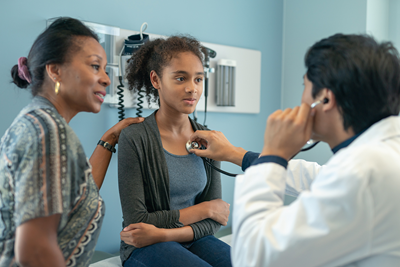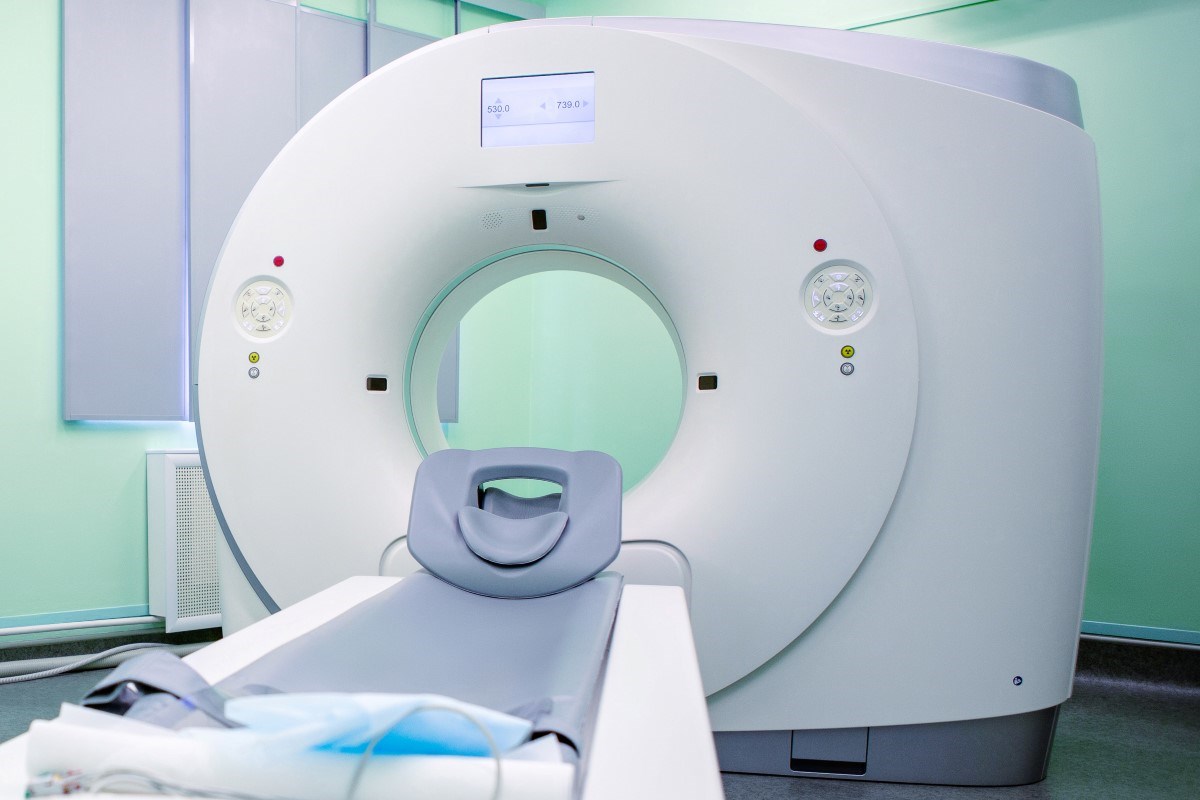Translational Medicine
The Translational Medicine program brings together top researchers from the Research Institute’s (RI) seven research programs to collaborate on research related to diseases affecting children.
Blending the expertise from multidisciplinary teams from SickKids distinct research areas allows us to contribute new clinical and biological ideas towards child health. Collaboration drives our program’s mission of advancing our understanding of disease mechanisms, so we can develop and assess diagnostic tests and treatments in cellular systems, disease models, and patient clinical trials.
Asthma, childhood cancer, COVID-19, cystic fibrosis, diabetes, heart defects, and obesity are some of the targets we currently have our sights set on.
Many directions, with one common goal.
Our areas of research focus on today’s most critical problems in childhood health. Through the Research Institute’s core facilities and labs, we utilize advanced cellular and molecular technologies and tools to accelerate research discovery, applying our knowledge gained in the clinic to improve patients’ outcomes.
Learn more about the five areas of child health we're currently focusing on:
Studies range from basic laboratory research to clinical trials as we pursue new medical therapies. By including a wide range of disciplines, our researchers take a comprehensive approach to examine the underlying mechanisms of childhood diseases, and translate this knowledge through innovative clinical trials into clinical care.

Pulmonary medicine research
Respiratory diseases are the number one cause of hospitalizations and a major cause of death among children around the world. Finding better tools to diagnose and monitor respiratory disease, as well as testing new therapies in clinical trials, are a key priority for Pulmonary Medicine research in Translational Medicine.
Our researchers are leading the charge against respiratory illness on multiple fronts – including lung development, fetal to neonatal transition and lung growth, lung injuries and infections, mechanical ventilation, asthma, cystic fibrosis, bronchopulmonary dysplasia, and sleep disorders.
Pulmonary Medicine laboratories examine lung diseases on a cellular and molecular level to gain a better understanding of how the lungs protect themselves, and then translate newfound knowledge to develop innovative therapies to apply in clinical trials.
Current themes
- Neonatal lung disease and lung development
- Chronic obstructive pulmonary disease
- Asthma
- Cystic fibrosis (CF)
- Epidemiology & treatment of multi-drug resistant bacterial pathogens causing infections with CF
- Ventilation-induced injury
- Pulmonary bacterial and viral infection
- Allergy & immunology-Food allergy
- Innate & adaptive immunity
- Gene therapy for genetic airway diseases
- Development of new functional airway testing

Cardiology research
Researchers and clinicians work side by side in the Cardiovascular Research laboratories, associated with the Labatt Family Heart Centre, to study clinically relevant cardiovascular problems.
Congenital cardiovascular (CV) malformations represent one of the leading causes of morbidity and mortality in children and adults – but it remains unclear how congenital CV malformations occur.
Our research laboratories investigate the physiology and biomechanics of developing CV systems in mouse embryos to better understand the structural and functional maturation of the normal heart and blood vessels, and the causes for congenital heart disease.
In order to better understand the interactions between mother and fetus (in mammals) that may contribute to altered CV morphogenesis, maternal and embryonic/fetal CV function is also investigated using high resolution ultrasound, as well as invasive techniques.
Current themes
- Biomarker development for inherited arrhythmias/cardiomyopathies
- Congenital heart block
- Prenatal programming of cardiovascular disease
- Arrhythmia
- Intrauterine growth restriction-prenatal hemodynamic mechanisms
- Cardiovascular imaging and Fetal cardiovascular using new MRI imaging technique
- New echocardiography techniques in children
- Pediatric cardiac interventions-mechanical circulatory support for neonates & infants with single ventricle physiology
- Drug discovery to treat fibrosis, dysfunction and arrhythmias
- Regenerative medicine
- Placenta-fetal circulatory physiology
- Epigenetic control of cardiovascular development

Among the nutrition and metabolism research we're embarking on includes creating a base for evidence-based specific exercise and activity interventions, using amniotic fluid stem cells and dietary supplements to treat Hirschsprung’s disease and Necrotizing Enterocolitis, and exploring maternal and infant nutrition-use of donor milk, folate, and metabolic status during pregnancy.
Other areas of nutrition research examine hypothalamic obesity, regulation of nutrient metabolism, non-alcoholic fatty liver disease, breastfeeding pharmacology, protein and amino acid requirement, protein quality in foods and several biological and psychosocial determinants.
Current themes
- Application and development of nutritional care
- Malnutrition
- Non-alcoholic liver disease
- Metabolism requirements
- Child obesity
- Diabetes type 2
- Hirschsprung’s disease & associated enterocolitis
- Necrotizing Enterocolitis (NEC)
- Novel treatments therapies
- Remote ischemic conditioning in NEC
- Amniotic fluid stem cells
- Neonatal intestine tissue sample bank

We're also active in clinical care and research in diseases of blood other than cancer. Platelets play important roles in the formation of hemostatic plugs, which stops bleeding from injured blood vessels, and arterial thrombi, which are responsible for the clinical complications of atherosclerosis. Biochemical mechanisms involved in platelet function and dysfunction are currently being studied.
Current themes
- Novel therapies and clinical trials for high-risk neuroblastoma
- Use of immune checkpoint inhibitors and immunotherapy for hypermutant childhood cancers
- Targeted and precision medicines for life-threatening diseases
- Coagulopathy in neonates and children with congenital heart disease
- Platelets, thrombosis & hemostasis
- Transfusion medicine

Imaging
The Imaging laboratories combine state-of-the-art digital imaging technologies, such as MRI, ultrasound, CT, and optical imaging to provide detection, measurement, and visualization of physiological processes in human subjects and animals that ranges from microscopic levels to the full body.
Current themes
- Neonatal & fetal imaging technologies
- Adaptation & malformations in the vascular system
- Adaptation of the brain with disease
- Cerebral vascular reactivity (CVR)
- 3D perfusion maps of cerebral blood flow
- Phenotyping genetic variants characterizing mouse disease models
- Musculoskeletal imaging (focus: cancer and arthritis): innovative experimental MRI and ultrasound research methods into clinical practice

July 24, 2025
OPTIMISE trial seeks to personalize cancer treatment for children with high-risk tumours
Precision oncology trial to investigate genomics-guided therapies for children, adolescents and young adults with hard-to-treat cancers.

June 17, 2025
Clinical trial for teens shows improved health outcomes for type 1 diabetes
A new study in teenagers with type one diabetes shows promise in reducing chronic kidney disease and informing future precision care.

June 10, 2025
New funding to support improving access to precision asthma care for children
SickKids research will explore the diverse factors influencing childhood asthma to support more equitable and effective prevention strategies.
Labs and core facilities
Our areas of research focus on today’s most critical problems in childhood health. While collaborating with SickKids core facilities, labs, centres and clinical departments, we utilize advanced cellular and molecular technologies and tools to accelerate research discovery, applying our knowledge gained in the clinic to improve patients’ outcomes.
With the help of technologies and tools, our researchers and their multidisciplinary teams translate discoveries into clinical care, and lay the ground for breakthroughs that shift our approaches to child health-care and policy.
Visit the Research Labs page for a list of Translational Medicine Lab websites.
The Translational Medicine program is home to several core facilities:
- Analytical Facility for Bioactive Molecules
- Research MRI Facility
- Animal Physiological Research Unit
- Mouse Imaging Centre
- Physiology Research Unit
Other associated programs and centres:
Centre for Complex Childhood Diseases
Funded by the Canada Foundation of Innovation (CFI), this state-of-the-art research facility enables whole body, physiological, pharmacological, neurological and nutritional metabolic translation research for complex childhood diseases including: rare disease cohorts, complex care, transplant, cystic fibrosis (CF), asthma and sleep disorders.
SickKids is one of the few institutions in the world capable of hosting an initiative as visionary and as comprehensive as the CSCCD. The CSCCD has become critical for the translation of research discoveries into improvements in the care of children afflicted with complex diseases.

Clinical Research Operations (CR Ops) supports study teams and quality clinical research with tools, templates, education, facilities and more.
Animal Physiology Research Unit
The Animal Physiological Research Unit (APRU) is a multipurpose laboratory equipped for physiological assessments of the nervous, heart, digestive, respiratory and circulatory systems of small animals. These include non-invasive/invasive lung function tests, blood gas measurements, MRI and ultrasound.
Analytical Facility for Bioactive Molecules
The AFBM is a state-of-the-art research facility created by the Translational Medicine Program. AFBM offers a range of services for the quantitative and qualitative analysis of biological samples to the greater scientific research community.
Human Tissue Culture and Biorepository
The HTCB is a modern facility equipped to process and derive primary cell isolates as well as human stem cells for further development in vitro and pre-clinical research models.

The Research MRI Facility provides a wide range of human and animal-model magnetic resonance imaging capabilities to Toronto-area scientists. Imaging is performed on a Siemens 3T PrismaFit system.
Research team
The TM program has over 60 scientists and clinicians dedicated to basic and clinical research supporting the program’s research themes.
Over the last decade, our team has grown substantially not only in the number of laboratory and clinical researchers, but in the cutting-edge research that’s become a hallmark at SickKids.
The quality of our research is recognized nationally and internationally, and is highly competitive with a high level of grant funding, publications in high impact journals, and an impressive number of citations. With Dr. Ratjen’s leadership, TM has grown into a one-of-a-kind research program in the world as we continue to discover new routes to prevent and treat childhood diseases.
- Dr. Cameron Ackerley
- Dr. Jaques Belik
- Dr. Allan Coates
- Dr. Thomas Eiwegger
- Dr. Estelle Gauda
- Dr. Hartmut Grasemann
- Dr. Jim Hu
- Dr. Colin McKerlie
- Dr. Mark McVey
- Dr. Theo Moraes
- Dr. Indra Narang
- Dr. Martin Post
- Dr. Nades Palaniyar
- Dr. Felix Ratjen
- Dr. Susan E. Richardson
- Dr. Padmaja Subbarao
- Dr. Neil B. Sweezey
- Dr. Valerie Waters
- Dr. Yvonne Yau
- Dr. Christopher A. Caldarone
- Dr. Flavio Coceani
- John Coles
- Dr. Paul Delgado Olguin
- Dr. Mark Friedberg
- Dr. Lindsay Freud
- Dr. J. Ted Gerstle
- Dr. Robert M. Hamilton
- Dr. Osami Honjo
- Dr. Edgar T. Jaeggi
- Dr. Shaf Keshavjee
- Dr. Lars Grosse-Wortmann
- Dr. Luc Mertens
- Dr. Steven Schwartz
- Dr. Michael Seed
- Dr. Earl D. Silverman
- Dr. Olivier Villemain
- Dr. Robert Bandsma
- Dr. Glenda Courtney-Martin
- Dr. Tanja Gonska
- Dr. Jill Hamilton
- Dr. Shinya Ito
- Dr. Farid Mahmud
- Dr. Deborah L. O'Connor
- Dr. Paul B. Pencharz
- Dr. Cecil Robert Pace-Asciak
- Dr. Zdenka Pausova
- Dr. Agostino Pierro
- Dr. Stanley Read
- Dr. Hoon-Ki Sung
- Dr. Gregory Wells
- Dr. Sarah West
- Dr. Daniel Morgenstern
- Dr. Margaret Rand
- Dr. James Whitlock
- Dr. Hai-Ling M. Cheng
- Dr. Andrea Doria
- Dr. Mark Henkelman
- Dr. Andrea Kassner
- Dr. Chris Macgowan
- Dr. Brian J. Nieman
Several TM staff members have received competitive awards and accolades in Canada and around the world for their contribution to improving child health outcomes.
Expand the list below to view our staff's awards and achievements!
Dr. Sylvain Baruchel
- 2010 - Légion D'honneur (equivalent to the Order of Canada)
Dr. Andrea Doria
- 2017 - Sloan Leadership Fellowship Award: Massachusetts Institute of Technology (MIT) Sloan School of Management, Cambridge, MA
- 2016 - Faculty Research Award: Department of Medical Imaging, University of Toronto
- 2016 - Excellence in Teaching Award: Department of Medical Imaging, University of Toronto
Dr. Mark Henkelman
- 2019 – Officer of the Order of Canada
- 2010 – Killam Prize in Health Sciences from the Canada Council
Dr. Jim Hu
- 2005-2006 - Zellers Senior Scientist Award from Canadian Cystic Fibrosis Foundation
- 2004-2007 - Premier’s Research Excellence Award of Ontario
Dr. Shinya Ito
- 2014 – Distinguished Service and Education Award, Canadian Society for Pharmacology & Therapeutics
Dr. Christopher Macgowan
- 2015 - Top Abstract Award (co-author) - 25th World Congress on Ultrasound in Obstetrics and Gynecology
Dr. Deborah O’Connor
- 2015 – Khursheed Jeejeebhoy Award, Canadian Nutritional Society
Dr. Agostino Pierro
- 2016 – Order of British Empire from her Majesty the Queen
Dr. Martin Post
- 2017 - Canada Research Chair
Dr. Felix Ratjen
- H.E. Seller’s Chair in Cystic Fibrosis
- 2013 – Queen Elizabeth Diamond Jubilee Medal
Dr. Padmaja Subbarao
- 2013 – Breathe New Life Award, Canadian Thoracic Society
Dr. Mike Seed
- 2013 – Pediatric Heart Network for the National Institute for Health – New Scholar Award
- BMO Financial Group Chair in Cardiology
Dr. Valerie Waters
- Cystic Fibrosis Canada Healthcare Advisory Council, Vice-Chair
Contact Translational Medicine
Dr. Palma Ottaviani, Program Manager
686 Bay St, Toronto, ON M5G 0A4
416-813-7654 ext. 304758

